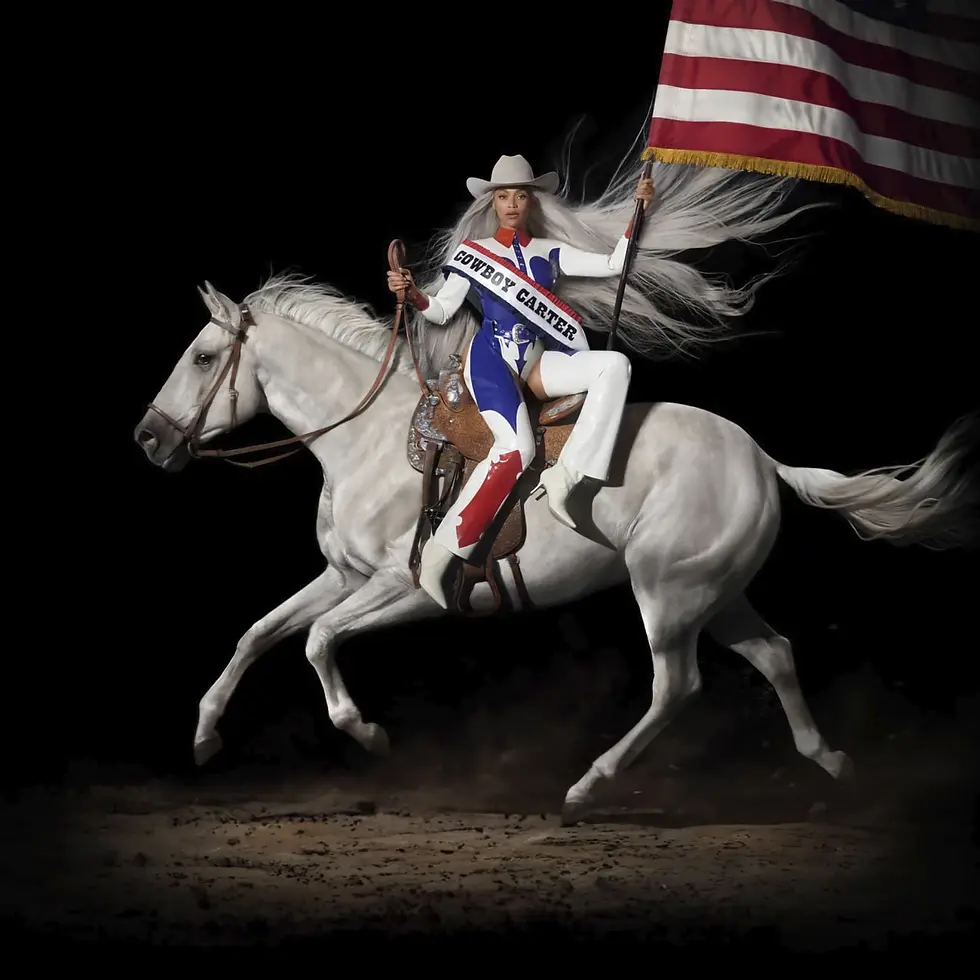Beyoncé’s ‘Cowboy Carter’ Rides High as Critics Hail Genre-Bending Masterpiece
- Ghetto Philosopher
- Apr 7, 2025
- 2 min read

Beyoncé released her highly anticipated album Cowboy Carter on March 29, delivering a powerful blend of country, gospel, and Americana. The project has received universal acclaim, spotlighting her collaborations with Miley Cyrus and Dolly Parton, and reigniting conversations about Black roots in country music.
In a music industry moment that’s both sonically bold and culturally significant, Cowboy Carter marks a genre-defying chapter in Beyoncé’s discography. The 27-track album challenges traditional definitions of country music, infusing it with gospel fervor, soul storytelling, and the confidence of pop royalty.
Featuring Miley Cyrus on “II Most Wanted” and Dolly Parton reimagining “Jolene,” the project honors the past while firmly asserting a new future. Beyoncé’s vocals shift between haunting balladry and powerful belt, threading themes of legacy, resistance, and freedom throughout.
This isn’t just a sonic pivot; it’s a reclamation. For decades, Black artists have been sidelined in the country genre, despite its deep African American roots. Beyoncé’s presence in this space isn’t accidental—it’s deliberate, disruptive, and overdue.
The album arrives in the wake of Beyoncé’s 2022 Renaissance, an ode to Black queer dance culture. With Cowboy Carter, she turns to another underrecognized cultural terrain, this time uplifting the rural Southern experience and pushing the genre’s racial boundaries.
Fans and critics alike are praising the album’s ambition. Rolling Stone called it “an audacious, era-defining statement.” The Guardian noted it “re-maps the geography of country music through a Black woman’s gaze.”

Country music has historically struggled with inclusion, often centered on White narratives. Yet artists like Charley Pride, Linda Martell, and Mickey Guyton have long proven otherwise. Beyoncé’s foray is both tribute and triumph, spotlighting not only her versatility but the unacknowledged Black legacy in country sound.
Beyoncé’s Cowboy Carter isn’t just an album—it’s a cultural reset. It opens new lanes, reclaims old ones, and forces both fans and gatekeepers to rethink what country music is—and who gets to make it.
As the music charts light up and think-pieces flood the internet, one thing is clear: Beyoncé has not only entered the country space—she’s redrawn the map.
Stream Cowboy Carter, revisit the work of Black country pioneers, and engage in the conversation around genre, race, and representation in music.






Comments